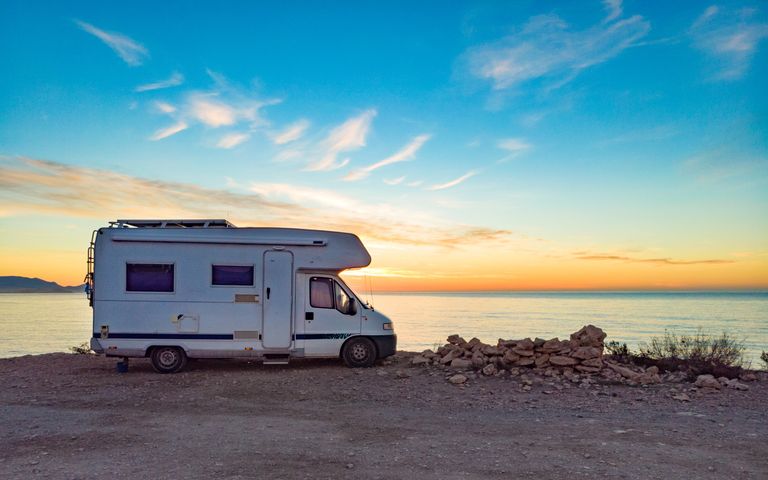What states allow you to live in an RV on your property?

For some people, RVs are an escape from reality. You might take a trip or two, indulging in luxury until it’s time to return to the real world. For others, though, full-time RV living is preferable to a house, apartment, or condo. If you lie in bed at night, missing the familiar comfort of your RV, you might be considering ditching other forms of shelter and committing to living in your well-maintained vehicle all year round.
Though this is a possibility, it also comes with a few pretty strict regulations. In certain states, like Delaware and Hawaii, it’s outlawed entirely. We wanted to learn more about the guidelines surrounding this offbeat lifestyle, so we looked into which U.S. states allow residents to live in RVs while still staying on their property. Keep reading to find out which corners of the country have the most relaxed rules about RV living.
Texas
We have good news for passionate RV’ers in the Lone Star State. Texas’s zoning regulations do permit citizens (and even their children!) to live in RVs on their property. To go about securing these living arrangements legally, you must have a valid Texas RV license, and your vehicle must pass an inspection. If you live in an HOA-run neighborhood, you should ask for the association’s approval before making the move from house to RV.
Florida
Florida is the land of sunshine, alligators, and, apparently, full-time RV living. In Florida, it is perfectly legal to live in an RV on your property. There are a few catches to this deal, as the law states only one RV can be parked on the property at a time. Furthermore, the vehicle can only be parked behind or to the side of the house. If you’re willing to follow these understandable rules, then feel free to start spending nights in your RV. Just be sure to keep the AC up during those humid summers!
Arizona
If you’re a fan of Arizona’s arid climate, pull up in your RV and stay for a while. Arizona’s laws don’t explicitly prohibit living in a recreational vehicle on your own property, though specific counties may have ordinances banning it. Explore this state’s gorgeous scenery through the large windows of your RV.
Colorado
Unsurprisingly, Colorado isn’t too uptight about RV regulations. Plenty of Colorado counties allow full-time RV living, so you can enjoy the state’s stunning views from the comfort of your vehicle. Check out this map to dive deeper into which counties are the most lenient.
Oregon
With its endless natural beauty and unique opportunities for outdoor recreation, Oregon is a prime candidate for those who relish time spent outside. Even better, Senate Bill 1013 recently ruled that homeowners may keep an occupied RV on their property. The goal of this bill was to increase housing options, and it went into effect on January 1, 2024.
All about Zoning
When unpacking the complicated rules behind full-time RV living, zoning is a vital part of the puzzle. Zoning regulations split land up into parts and label those parts accordingly. Specific areas of a county may be residential, commercial, or industrial. Before moving into your RV, you must look into the zoning laws of your property and verify that this practice is permitted. It would help if you also looked into area rules surrounding what permits you need, whether or not an RV inspection is necessary, and how many people are allowed to live in a singular RV at one time.
Class A is the way to go
If you’re considering moving from a house to an RV, you probably want the best-looking, most modern RV class on the market. Class A RVs are massive and luxurious, usually possessing amenities like kitchens, bathrooms, TVs, fridges, and theater seating. Transwest sells big-name brands like Newmar and Winnebago, and the sturdiness of these well-crafted vehicles makes them ideal for full-time shelter. Purchase a Class A model at Transwest today, and you’ll barely know the difference between your RV and a traditional home.
Find your new home at Transwest
If you can’t get enough of your RV, it’s possible you’d enjoy living there all the time. First, though, it's important to verify what regulations your state places on this practice. If you’re looking to realize your dream of RV living, start the transition by visiting a Transwest location near you.









Share
Email
Facebook
SMS
Twitter